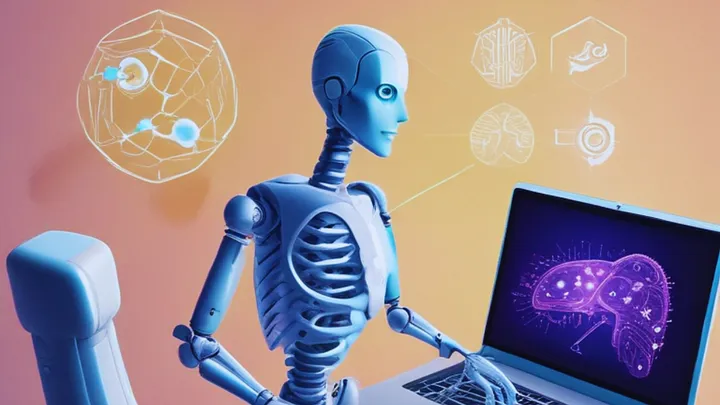Generative AI is transforming healthcare by enabling early disease detection, personalized treatment, and accelerated drug discovery. This technology analyzes vast datasets to uncover patterns and predict health risks, making it a powerful tool in managing complex diseases.
Revolutionizing Disease Diagnosis Generative AI excels in early detection by analyzing medical data such as imaging and genetic tests. For instance, AI models like Google’s DeepMind have shown impressive success in diagnosing breast cancer more accurately than human radiologists. AI also helps diagnose rare diseases by identifying genetic mutations and predicting potential outbreaks.
Enhancing Treatment Plans with AI AI is reshaping treatment by personalizing medicine. It analyzes patient data to create tailored therapies, ensuring better outcomes and minimizing side effects. By optimizing drug discovery, generative AI reduces the time and cost of bringing new medications to market, streamlining the research process.
Tackling Global Health Challenges Generative AI plays a crucial role in combating infectious diseases. By predicting outbreaks and analyzing environmental factors, AI helps governments prepare for epidemics. During the COVID-19 pandemic, AI was vital in vaccine development and continues to aid in malaria control.
AI for Preventative Healthcare Generative AI also aids in preventative care by predicting health risks before they escalate. Wearable devices powered by AI can track vital signs and alert users to potential health issues, helping people make informed choices to avoid chronic diseases.
Ethical and Implementation Challenges Despite its potential, generative AI faces challenges, including data privacy concerns, bias in models, and ensuring equitable access to healthcare. Safeguards like encryption and diverse datasets are necessary to build trust in AI-driven healthcare solutions.
Conclusion Generative AI is revolutionizing healthcare by improving diagnosis, treatment, and prevention, making healthcare more effective, affordable, and accessible. However, addressing ethical concerns and ensuring broad access to these innovations will be essential for realizing their full potential.
To learn more about how generative AI is reshaping healthcare, read more here.

